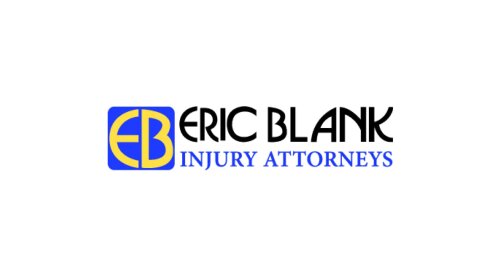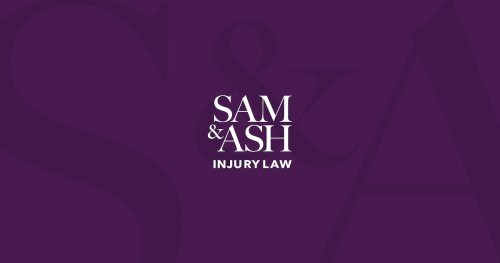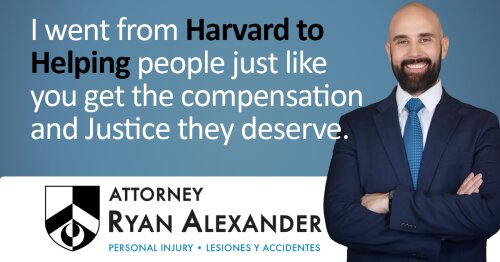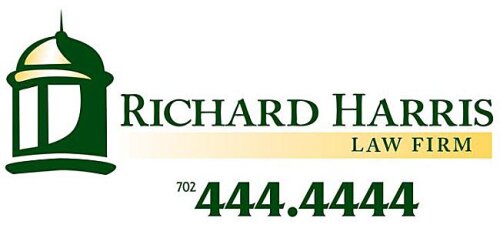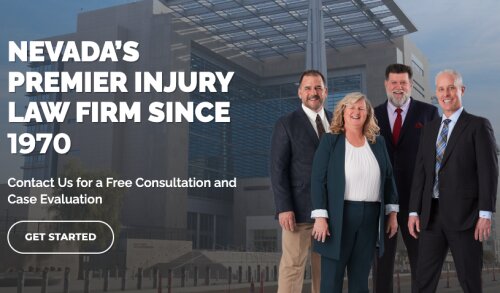Best Bad Faith Insurance Lawyers in Las Vegas
Share your needs with us, get contacted by law firms.
Free. Takes 2 min.
List of the best lawyers in Las Vegas, United States
About Bad Faith Insurance Law in Las Vegas, United States
Bad faith insurance law addresses situations where an insurance company fails to honor its legal or contractual duties to a policyholder or an insured third party. In Las Vegas, Nevada, bad faith claims arise when an insurer unreasonably denies, delays, underpays, or fails to investigate a covered claim, or otherwise handles a claim in a way that violates the insurance contract or applicable legal standards.
Bad faith claims can involve both first-party disputes, where a policyholder seeks benefits under their own policy, and third-party disputes, where an insured is exposed to liability and an insurer refuses to defend or settle within policy limits. Remedies may include compensatory damages, consequential losses, attorney fees in some cases, and, where warranted, punitive damages for especially egregious conduct.
Why You May Need a Lawyer
Insurance companies have teams of adjusters, defense counsel, and procedures designed to limit payouts. If you believe an insurer acted unreasonably, a lawyer can help level the playing field. Common situations where legal help is advisable include:
- Your insurer denies a claim that you believe is clearly covered under the policy.
- The insurer delays payment for an unreasonable period without a valid explanation.
- The insurer offers a settlement that does not reasonably compensate you for your losses.
- The insurer refuses to defend you or to settle within policy limits, exposing you to a judgment above your coverage.
- The insurer misrepresents policy terms, excludes coverage without justification, or fails to conduct a proper investigation.
- You are facing complex issues like total-loss claims for vehicles, disputed property damage from property or flood events, long-term disability denials, or life insurance benefit disputes.
In these situations a lawyer can evaluate your rights, gather and preserve evidence, negotiate with the insurer, file administrative complaints when appropriate, and pursue litigation if necessary. Lawyers experienced in insurance law understand local courts, applicable evidentiary rules, and how to present bad faith claims effectively.
Local Laws Overview
Nevada law regulates insurance through a combination of statutes, administrative rules, and court decisions. The Nevada Division of Insurance enforces consumer protections and oversees insurer licensing and market conduct. Nevada courts have recognized both first-party and third-party bad faith causes of action under state law.
Key legal considerations in Las Vegas and Nevada include the following:
- Contract versus tort issues - Bad faith claims often assert both breach of contract and tort claims. The nature of the claim can affect available damages and required proof.
- Duty to investigate - Insurers have an obligation to conduct a prompt and thorough investigation of claims. Unreasonable delays or cursory investigations may support a bad faith claim.
- Duty to communicate and adjust fairly - Insurers must not mislead claimants about coverage or the claim process and must make timely decisions rooted in reasonable proof.
- Settlement conduct - In third-party cases, insurers may face bad faith liability if they fail to accept reasonable settlement offers within policy limits, thereby exposing the insured to excess judgments.
- Remedies - Courts may award compensatory damages for losses caused by bad faith, consequential damages such as lost wages or additional property damage, attorney fees in limited circumstances, and punitive damages where insurer conduct is particularly reckless or malicious.
- Administrative remedies - The Nevada Division of Insurance accepts consumer complaints, investigates unfair claim practices, and can take enforcement action against insurers. Filing a complaint does not necessarily prevent a civil lawsuit and timelines for legal claims continue to run.
Because statutes of limitations, evidentiary rules, and available remedies can differ depending on the facts, consultation with a local attorney is important to determine the specific legal framework that applies to your claim.
Frequently Asked Questions
What is a bad faith insurance claim?
A bad faith insurance claim alleges that an insurer unreasonably denied, delayed, underpaid, or mishandled a claim in violation of its legal duties or the insurance contract. The claim seeks compensation for losses caused by the insurer's improper conduct.
How do I know if my insurer acted in bad faith?
Signs of bad faith include unexplained or prolonged delays, denial without a reasonable basis, failure to investigate, misrepresenting policy terms, refusing to defend or settle a third-party claim when appropriate, and making lowball settlement offers that do not reflect reasonable damages.
Can I file a complaint with a government agency?
Yes. The Nevada Division of Insurance handles consumer complaints and investigates insurers for unfair or deceptive practices. Filing a complaint can prompt an investigation, but it does not replace the option to hire an attorney and pursue a civil claim.
What damages can I recover in a bad faith case?
Potential recoverable damages include the amount owed under the policy, consequential losses caused by the insurer"s conduct, emotional distress in some cases, attorney fees in limited circumstances, and punitive damages if the insurer acted with malice or reckless indifference. Available remedies depend on the facts and applicable law.
How long do I have to bring a bad faith claim?
Time limits for filing bad faith claims vary based on whether your claim is framed as a contract claim, tort, or based on statute. Deadlines can also be affected by tolling rules and ongoing administrative proceedings. Because timelines are fact dependent, consult a local attorney as soon as possible to preserve your rights.
Do I need to exhaust administrative remedies before suing?
Not usually. Filing a complaint with the Division of Insurance may be helpful, but it does not typically substitute for a civil lawsuit. That said, certain policies or circumstances could affect strategy, so discuss options with an attorney before suing.
Will an attorney take my case on contingency?
Many consumer and personal-injury attorneys handle bad faith insurance cases on a contingency-fee basis, meaning the lawyer is paid a percentage of any recovery. Fee arrangements vary, so confirm terms in a written agreement before hiring an attorney.
What evidence is important in a bad faith case?
Key evidence includes the insurance policy, claim file documents, correspondence with the insurer, denial and claim notes, photographs, repair estimates, medical records if applicable, witness statements, and any records showing financial harm or missed opportunities caused by the insurer"s conduct.
Can insurers use arbitration clauses to block lawsuits?
Some insurance policies include arbitration clauses requiring disputes to be resolved through arbitration. These clauses may limit or alter where and how you pursue a bad faith claim. An attorney can review your policy to determine whether arbitration applies and advise on potential exceptions or tactical considerations.
What if my claim involves an out-of-state insurer or adjuster?
Bad faith claims are typically governed by the law where the insurance contract was made or where the insured risk is located. Out-of-state insurers may still be subject to Nevada law if they do business in Nevada or if the policy covers Nevada risks. A local lawyer can assess jurisdictional issues and ensure your claim is filed in the proper forum.
Additional Resources
Nevada Division of Insurance - State agency that regulates insurers, handles consumer complaints, and enforces insurance laws. Filing a complaint can prompt an investigation into insurer conduct.
Nevada State Bar - Resource to find licensed attorneys, check lawyer credentials, and learn about ethics rules and fee dispute processes.
Clark County Bar Association - Local bar offers lawyer referral services and resources for finding attorneys with insurance litigation experience in the Las Vegas area.
Local law libraries and the county courthouse - Helpful for self-research and for accessing Nevada statutes and court opinions relevant to insurance disputes.
Community legal aid organizations - For individuals with limited resources, legal aid programs may provide low-cost or pro bono assistance or referrals for consumer insurance issues.
Next Steps
1. Preserve evidence - Gather and securely store your insurance policy, all letters and emails with the insurer, claim numbers, photographs, repair estimates, medical records if applicable, and notes of phone calls including dates and names.
2. File a Division of Insurance complaint - Consider filing a consumer complaint to create an official record and prompt agency review. Keep copies of your submission and any responses.
3. Consult a local attorney - Schedule a consultation with a Nevada attorney who handles insurance bad faith matters. Bring your documents and a clear timeline of events. Ask about experience with similar cases, likely outcomes, fees, and next steps.
4. Evaluate dispute-resolution options - Your lawyer can advise whether negotiation, mediation, arbitration, or litigation is the best approach based on the facts and the policy language.
5. Act promptly - Legal deadlines and practical considerations make timely action important. Even if you are still negotiating with the insurer, consult an attorney early to preserve rights and evidence.
If you need legal help, begin by collecting your documents and reaching out to a licensed Nevada attorney experienced in bad faith insurance claims. Early legal advice can protect your rights and increase the chances of a fair resolution.
Lawzana helps you find the best lawyers and law firms in Las Vegas through a curated and pre-screened list of qualified legal professionals. Our platform offers rankings and detailed profiles of attorneys and law firms, allowing you to compare based on practice areas, including Bad Faith Insurance, experience, and client feedback.
Each profile includes a description of the firm's areas of practice, client reviews, team members and partners, year of establishment, spoken languages, office locations, contact information, social media presence, and any published articles or resources. Most firms on our platform speak English and are experienced in both local and international legal matters.
Get a quote from top-rated law firms in Las Vegas, United States — quickly, securely, and without unnecessary hassle.
Disclaimer:
The information provided on this page is for general informational purposes only and does not constitute legal advice. While we strive to ensure the accuracy and relevance of the content, legal information may change over time, and interpretations of the law can vary. You should always consult with a qualified legal professional for advice specific to your situation.
We disclaim all liability for actions taken or not taken based on the content of this page. If you believe any information is incorrect or outdated, please contact us, and we will review and update it where appropriate.



